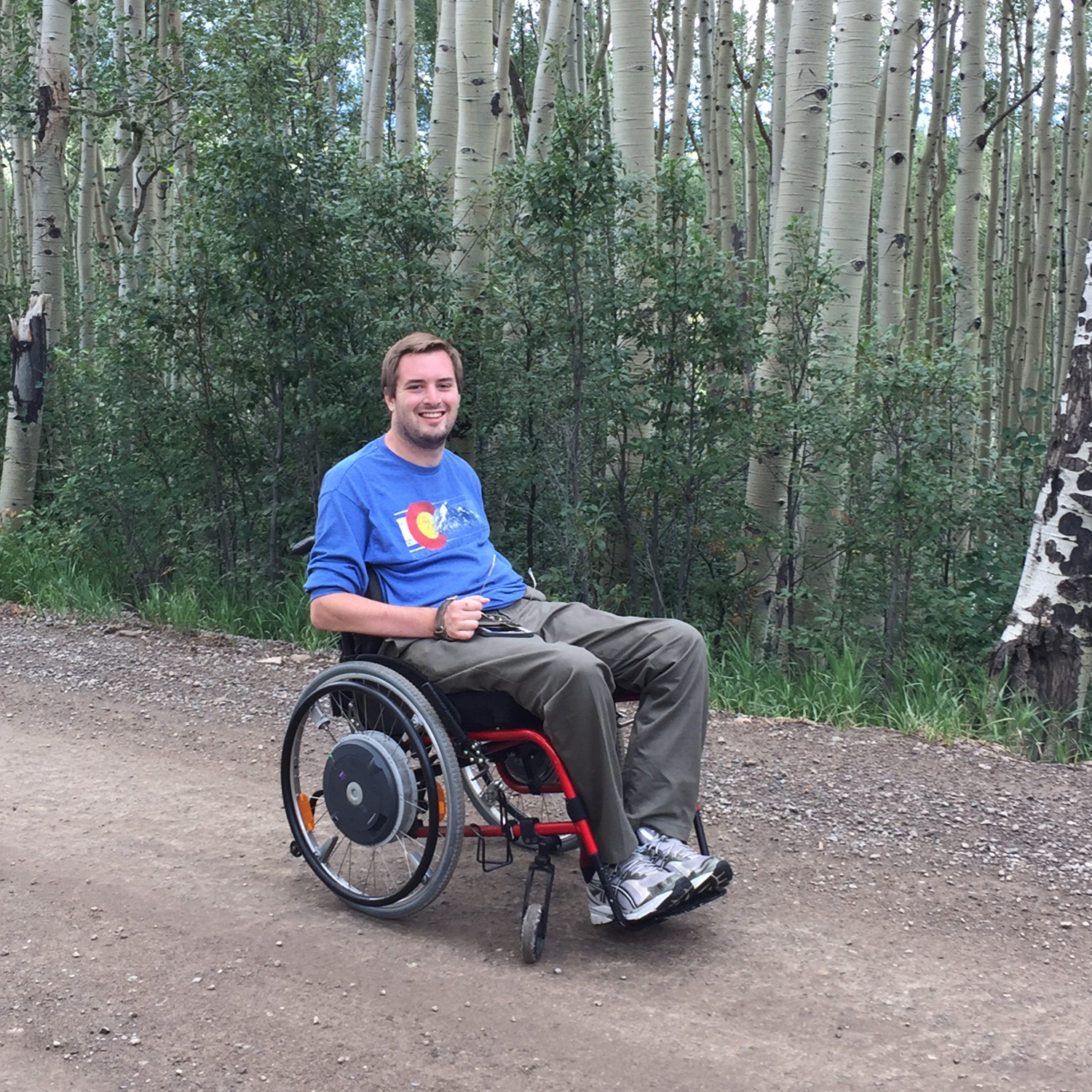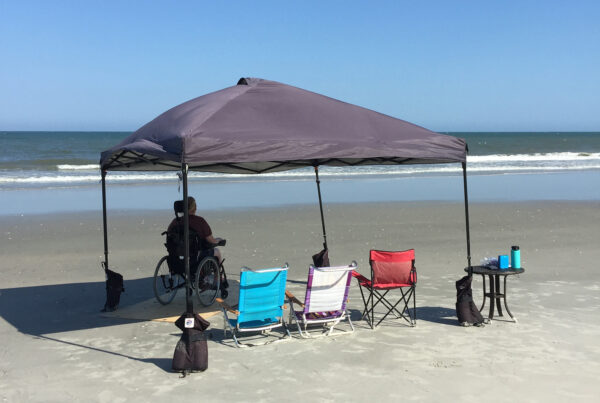You needed this: a Saturday summer gathering with long-lost friends, sunshine on your face, and proper New York style pizza (a rare gem in Denver). Your waiter comes by to ask if everything is okay. “Why not order a beer?” you think to yourself. And you do. It’s only 4:00 PM, and there’s still a couple hours until the big game starts. You look down at your phone because this moment is worth a picture.
Then you see a text message that you missed from an hour ago. It’s from Lisa, your caregiver for the night. The euphoria you were feeling yields to nerves. You almost forgot about the reality that, as a quadriplegic, you’re bound to a wheelchair and dependent on home health care to get into bed. Why would Lisa text you now? Your fears materialize as you read that Lisa isn’t going to be able to help tonight because of a special family event she had forgotten.
You’re physically present with your friends, but you no longer feel part of the occasion. You glance down at your phone again. It’s 4:30 PM, and from here on out, finding an emergency substitute aide is your new and only priority. Never mind your friends, the upcoming game – you must do everything you can to avoid the pain and misery of sitting in your wheelchair all night long. And there’s no time to waste.
Racking your brain, you speculate that it might be possible to have one of your aides who you know is working a hospital night shift help you beforehand. Sure, you may have to get into bed around 7:00 PM and bid your friends an Irish Goodbye, but at least you would be able to lay down for the night! You feel like you’re hearing the shrill pitch of your morning alarm clock. You must face reality immediately – and the dream is over.
None of your friends know what you’re silently going through. But even if they did, they wouldn’t understand. For them, sleep is a luxury. For you, it’s a job. As you try to contribute to the table conversation, you’re simultaneously working and strategizing your potential salvation. Two other aides on your Medicaid payroll, Paul and Adrianna, might be able to help you tonight. And given that it’s a Saturday night, this silent charade can’t continue.
After lying to your friends about needing to use the bathroom, you roll out of the noisy restaurant and into the parking lot. Both calls to Paul and Adrianna go to their voicemail. You text them, explaining you’d be willing to pay more and accommodate their schedules if needed. After a few minutes, you still don’t have a response.
Best to go back inside before your friends start to worry. The SOS has been sent and there’s nothing more to do. As you reenter the restaurant, you notice the pregame hype on the television screens. But the only game you’re concerned about now is your own waiting game.
Sadly, none of this is new. It’s been nine years since the car accident that broke your neck and left you paralyzed from the chest down. Back then, you were a 20-year-old College Junior. You fought hard through the recovery to return to school a year later, you still returned in a wheelchair.
Most serious injuries knock people off course but there’s almost always a full recovery. Spinal cord injuries, on the other hand, are uniquely cruel in their permanence. Reminders of this “new normal” abound. Ultimately, paralysis becomes your physical identity. It defines your lifestyle by demanding dependence on help to gain short-lived shimmers of independence truncated between your morning and night routines.
Your mind wanders like a buoy tethered to the ocean floor, hitting hypothetical realities you may have inhabited absent the injury. Instead of continuing to enjoy the company of your friends, you keep glancing down at your phone in desperation. Now it’s 6:00 PM and you’re thinking about the worst-case scenarios.
Incoming text message! Your heart skips a beat as you prepare to learn your fate for the night. Jackpot. Paul says he can come to help you, but he must come early because he and his Partner have plans. Lacking any bargaining power, you express gratitude and accept the early bedtime.
As you press “Send,” your friends suggest patronizing another sports bar just two blocks away. “I’ve actually got to get going home,” you tell them. Although disheartened, they understand: when you came back to college as a quadriplegic, these friends became familiar with these abrupt departures. When your caregivers arrived to end your night’s adventures, they continued on.
This is your sword of survival. One edge is that you have help to maximize your opportunities for independence and vitality. The other edge cuts limitations throughout your new reality and illuminates the life that could have been.
– Bryce Rafferty
About the Author
Bryce Rafferty is a quadriplegic Coloradoan and licensed Attorney. After growing up in the Northeast, Bryce attended Colorado College in Colorado Springs. He was immediately hooked on the beauty of the State and the spirit of its people, ultimately moving to the Denver Metro area after his undergraduate studies. His decision to enter the legal profession was inspired by volunteer disability advocacy for the Colorado Cross-Disability Coalition – a disability rights nonprofit where he now works. Bryce is also a musician and writer who has a passion for human rights and vitality, sharing his compositions and perspectives with others in hopes to foster positive and progressive futures for all.





